commentary Commentary
Commentary: The rise of the digital economy – and how education may be transformed
Young Singaporeans must be taught digital skillsets, but changes will also be needed to the focus of education and the training of teachers, says Jason Tan.
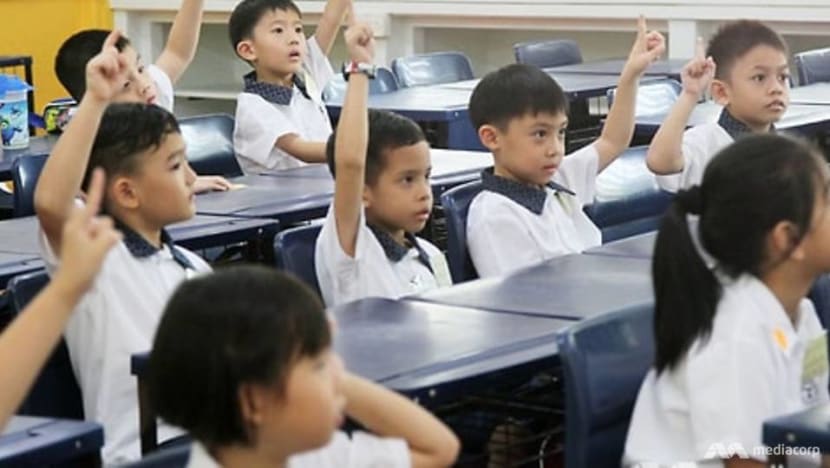
File photo of students at a primary school.
SINGAPORE: There is a growing realisation that Singapore needs to face head-on numerous challenges posed by the rise of the digital economy.
Local recruitment firms have highlighted the importance of employees possessing ICT specialist skills, while the manufacturing sector has seen the rise of automated work processes.
At the same time, the retail and transport sectors have borne the brunt of disruption brought out by online commerce.
The digital economy that has emerged over recent years has transformed the organisation of labour, production and trade around the world.
This hyper-connected economy is driven by the use of digital technologies such as cloud computing, data analytics, the Internet of Things, Artificial Intelligence (AI) and robotics.
READ: Commentary: The revival of the digital economy – building citizen confidence
READ: The rise of the digital economy: Where the jobs are and how to get ready for them
This pace of change will only accelerate as Singapore presses ahead on leveraging AI. A Model AI Governance Framework has been launched to help firms develop their approach to AI.
More recently, Minister for Communications and Information S Iswaran announced the launch of more initiatives to improve consumer trust and governance of AI.
THE DIGITAL ECONOMY WILL DEMAND NEW WAYS OF WORKING
Besides disrupting traditional work patterns, the digital economy also has serious implications for economic, social and cultural relationships.
For instance, AI has enabled the automation of not only more routine administrative tasks but also supposedly higher-level, white-collar work such as legal research.
In 2017, the United Nations Educational, Scientific and Cultural Organisation (UNESCO) published a report that addressed the issue of digital skills needed for life and work. The report outlined three broad sets of skills.
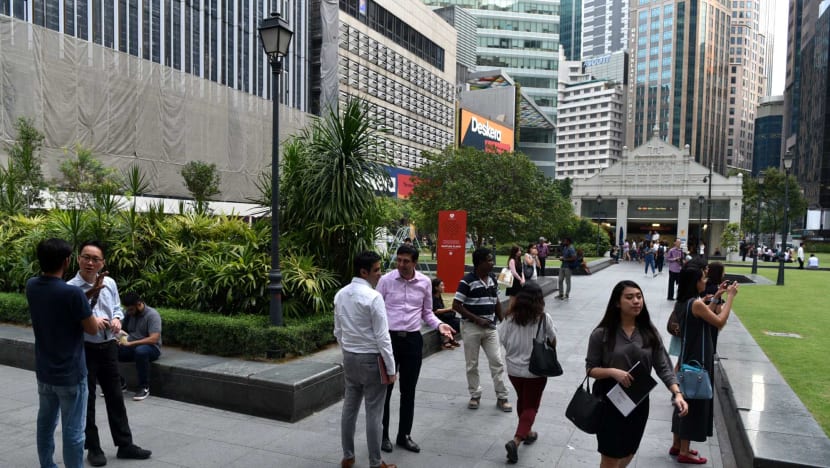
First, basic digital skills that enable students to access and make functional use of digital technologies.
Second, an intermediate range of generic digital skills that include the ability to understand, contextualise and critically evaluate how technologies are being employed.
Third, a set of highly technical skills, such as computer programming and data analysis, which are advanced and are not normally well developed or needed in ordinary users of technology.
Beyond these skills, the UNESCO report highlighted “ICT-complementary skills” such as critical thinking and problem-solving, creativity, innovation, entrepreneurship, collaboration and teamwork, and communication.
READ: Here’s what Singapore’s human capital index in a world of disruption should look like, a commentary
READ: Commentary: Career Mobility is the new Career Stability
Additional skills mentioned in the UNESCO report include critical information literacies, which will enable individuals to be active consumers, rather than passive recipients, of information, and to make informed decisions when using online and offline information.
Another skill category revolves around critical data literacies, which involve strengthening awareness of the ways in which digital data are obtained or monitored by digital devices and systems.
These skills are especially pertinent in the light of some of the major risks posed by the digital economy. These include cybersecurity breaches, illegal economic activities, and changing conceptions of privacy.

At the same time, the UNESCO report warned of the danger of digital inequalities across the lines of factors such as socio-economic status, educational attainment and physical abilities.
HOW TO CREATE RAISE DIGITAL-READY NATIVES
In the light of the publication of the UNESCO report, how does the Singapore education system stack up? What is the Ministry of Education doing to better prepare students for the digital economy?
In the face of the growing significance of the digital economy, are our schools keeping up in terms of preparing digital-ready citizens?
On its part, the Ministry of Education has been striving to ensure students are adequately prepared for the digital economy.
Speaking in Parliament in January, Minister for Education Ong Ye Kung said that all upper primary school students would from 2020 onwards participate in a Code for Fun enrichment programme.
Some primary schools would begin offering Applied Learning Programmes in technology-related areas such as robotics and coding in 2023.
Secondary school students could also participate in various technology-related Applied Learning Programmes and Computing subjects.
He also pointed out that Singapore would continue to focus on Mathematics and Science in schools, while encouraging students to study Science, Technology, Engineering and Mathematics (STEM) subjects or courses.
READ: Commentary: We now live in a ‘science fiction world'. We need to boost STEM education
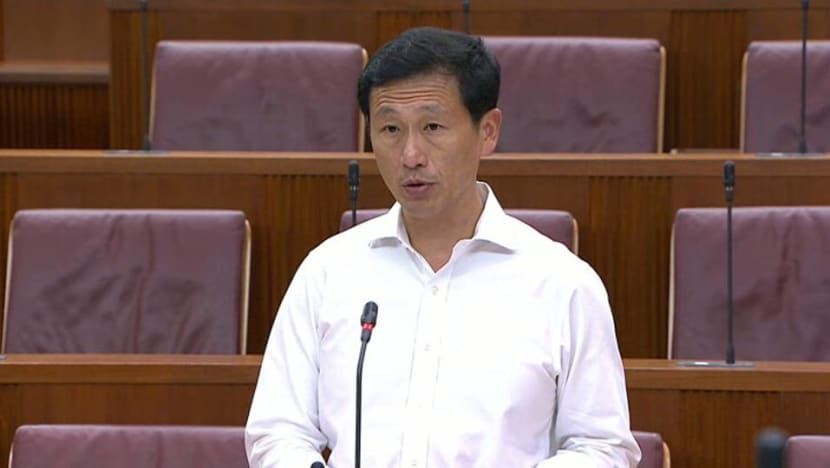
It may therefore be more helpful to move beyond the imparting of hard skills and equip students as well with more enduring skills (which the UNESCO report refers to as “ICT-complementary skills”) to help them navigate their futures.
EDUCATION FOR THE DIGITAL ECONOMY
On this front, Singapore schools have been actively trying through various Character and Citizenship Education programmes as well as through mainstream curriculum subjects to impart these so-called 21st century skills.
However, various observers have pointed out the difficulty of doing so in a highly competitive school system that is accompanied by a ubiquitous private tutoring industry, which is already trying to move away from an overly heavy emphasis on academic performance.
The Ministry of Education faces an uphill task in ensuring that its current efforts to de-emphasise the importance of results and promote the joy of learning, such as the reduction of tests and examinations in primary and secondary schools, manage to convince teachers, students and parents of the need to focus as well on these 21st century skills.
Besides the skills that have been discussed so far, there are also calls to re-examine the traditional forms of teacher-student interaction and classroom-based instruction in schools, as well as to promote inter-disciplinary learning to break down subject boundaries.
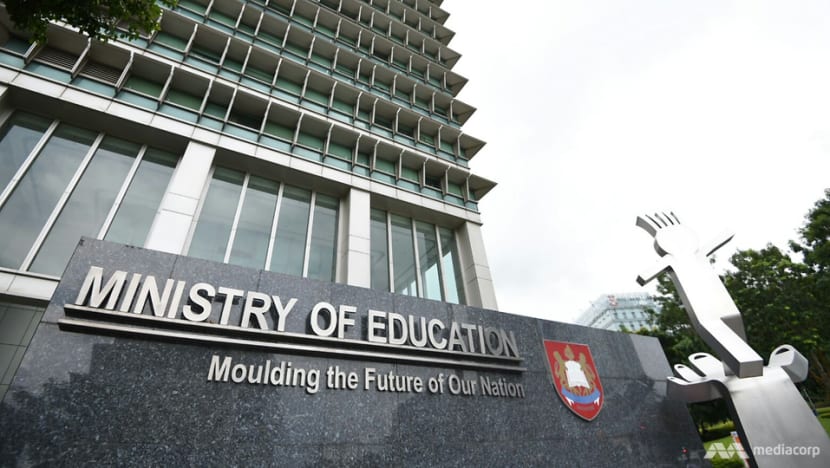
Advocates of these further reforms claim that well-established patterns of organising lessons and schools are a by-product of previous waves of industrialisation and are ill-suited to the task of preparing students for the Fourth Industrial Revolution.
Although a range of wholly online lesson delivery mechanisms such as Massive Open Online Courses (MOOCs) currently exists, there is still an enduring demand for forms of instruction that involve face-to-face interactions with others in social settings, especially for younger students.
Furthermore, the development of interpersonal skills is best done within an environment where students learn alongside other students rather than one in which students learn in isolation.
There is probably a considerable inherent value attached to the socialising function of schooling.
This means that traditional classroom arrangements will probably prove resilient, while being increasingly supplemented by technology-enabled pedagogies (such as augmented reality) both within and outside of classrooms.
READ: Commentary: We have totally undervalued late bloomers
READ: Commentary: As a parent, I worry about my kids and the novel coronavirus situation. So I’m taking action
Large-scale inter-disciplinary teaching in schools would involve a complete rethinking of such issues as timetabling, assessment systems and teacher competencies.
It would also call into question the adequacy of teacher preparation for such teaching, since teachers have completed their studies in institutes of higher education that are characterised by specialisation in various courses of study.
WHAT NEW TRAINING TEACHERS NEED
This leads to another pressing challenge, namely, teacher preparedness. How prepared are our teachers for helping their students to face the digital economy?
Teachers are dealing with so-called digital natives who have grown up with digital devices and platforms, and who may be much better acquainted with digital technologies than themselves.
In addition, teachers need to keep abreast of the bewildering speed of change and disruption in order to better prepare their students for what seems at times like an unpredictable future.
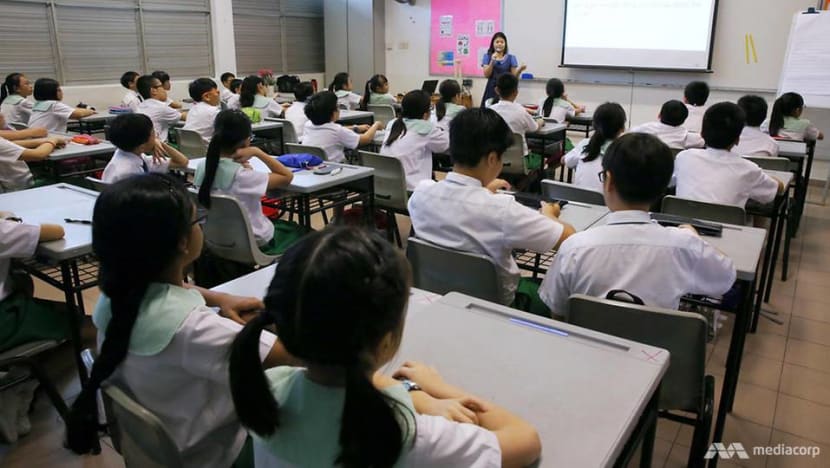
In this respect, the policy of allowing teachers to enjoy sabbaticals that involve external workplace attachments is a positive step.
Irrespective of the specific subject content that they are teaching, the Ministry of Education has called on all teachers to play their part in helping students develop a broad range of 21st century skills as well as critical information and data literacies.
READ: Commentary: Teachers love their jobs and feel valued but face immense challenges
TACKLING OTHER KNOCK-ON EFFECTS
Another priority mentioned in the UNESCO report that is relevant for Singapore is that of digital inequalities. The Ministry of Education needs to ensure that all of our students have equitable access to basic and generic digital skills while supporting some to acquire advanced proficiency.
In other words, another item has been added to the list of priorities as the Ministry of Education attempts to address issues such as socio-economic inequalities, social mixing in schools and greater inclusivity.
The urgency of addressing the digital divide has been reiterated in the World Economic Forum’s Global Social Mobility Report 2020 and discussed at Davos last month.
While this commentary has focused on schools, it is important nevertheless to remember that what happens in schools is only one part of the answer to adequately preparing all Singaporeans for the current, as well as, future disruptions.
The schools’ efforts have to be complemented by other measures.
These include encouraging more workers to avail themselves of SkillsFuture courses, ensuring fair employment practices and macro-economic strategies that boost Singapore’s economic competitiveness within a VUCA environment.
In March 2020, the inaugural CNA Digital Economy Leadership Summit 2020 will bring together some 200 key decision makers from Government, diplomatic circles and the private sector from around Asia, to explore key issues that include: How to grow and innovate in a digital economy, as well as how to manage talent and ensure sustainability in the digital economy.
More details are available at: cna.asia/leadership-summit
Jason Tan is Associate Professor in Policy, Curriculum and Leadership, National Institute of Education.














